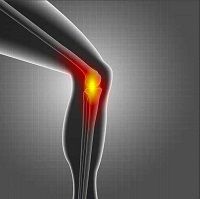Article
RA Patients Willing to Be Research Subjects, Online Survey Finds
Author(s):
Nearly 1,000 rheumatoid arthritis patients members who follow the creakyjoints.org site said they would be willing to be research subjects.

Nearly 1,000 patients with rheumatoid arthritis who are part of an online arthritis sufferers group said they are mostly open to the idea of participating in research about their condition, a recent survey found.
Reporting last month at the Annual European Congress of Rheumatology (in London, UK, study author W. Benjamin Nowell, PhD, said 970 members of CreakyJoints.org, a web-based international arthritis patient community, completed a survey on willingness to be research subjects.
The non-profit organization has both non-profit and pharma sponsors and says it has 100,000 "community members" who follow the site.
The survey was done because the organization was about to launch ArthritisPower.org, a research network funded by the Patient-Centered Outcomes Research Institute.
The questionnaire asked patients how willing they would be to participate in research, and under what circumstances.
For example, respondents were most amenable (93 percent) to accepting invitations by their physicians, with 66% saying they would be “very interested” and 27% “somewhat interested.”
The respondents were most likely to respond positively to requests by a medical school/hospital (83%), followed by a non-profit (79%), the government (73%), or a drug company (63%). The degree of interest dropped to half or less for solicitations to work with a private company (50%) or insurance company (46%).
The group members also listed reasons they would not participate.
Among US respondents, for example, a majority (75%) would refuse to participate in a study that required their social security numbers. Far fewer indicated that they would not participate if they had to provide their email address (20%) or their medical records (34%).
Overall, the leading potential factors cited as deterrents to participation were: “project not recommended by doctor” (30%); “individual results may not be kept private/confidential” (28%); and “project will take a lot of time” (25%).
The respondents were primarily female (93%) and white (85%), with a mean age of about 55.
The most frequent comorbidities listed by respondents were osteoarthritis (45%), fibromyalgia (26%), osteoporosis (18%), psoriatic arthritis (8%), lupus (5%), and ankylosing spondylitis (5%). Most indicated they were currently taking a DMARD (59%), or a biologic (50%), while 23% reported taking neither.




